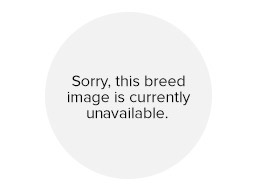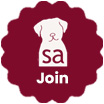Breed standards
Wirehaired Slovakian Pointer
Breed standards are the official guidelines that describe the ideal characteristics, temperament, and appearance of a breed and ensures that the breed is fit for function with soundness essential.

TRANSLATION : Mrs. Peggy Davis.
ORIGIN : Slovakia.
DATE OF PUBLICATION OF THE OFFICIAL VALID STANDARD : 06.01.1995.
UTILIZATION : Pointer.
FCI-CLASSIFICATION : Group 7 Pointing dogs.
Section 1.1 Continental Pointing Dogs, type “Braque”. With working trial.
Dog of moderate strength, working type, but with nobleness in his lines. The basic colour of the coat is called “grey” and the hair is harsh (hard). He must be fit and able to work on the plain, in the woods and in the water and especially to work after the shooting, searching and retrieving wounded game. He is obedient and easy to train.
IMPORTANT PORPORTIONS :
Shape : The ratio of length of the body to the height at the withers must be of 10 : 9 in the males and of 10 : 8 in the females.
Unique type : It is desirable that the dog be solidly built, but not of a heavy type.
General description : Sufficiently long, lean, without folds in the skin, proportional to the body.
CRANIAL REGION :
Skull : Rectangular shape, the superciliary arches must be pronounced, the frontal furrow visible. The occipital crest is felt at
the touch.
Stop : The slope is moderate (about 45°).
FACIAL REGION :
Nose : Sufficiently large, dark in colour. Large nostrils.
Muzzle : Approximately the same length as the skull, sufficiently high and wide. Lower jaw even and strong with a well developed set of teeth. The muzzle is straight.
Lips : Moderately developed; fitting closely, dark in colour.
Leathers : Of proportional length, set above eye level. Broad at the inset (base) and the flap is rounded.
Eyes : Almond shape, well set into the eyesocket, of amber colour, with an intelligent expression. In the puppies and the young dogs, they are bluish (azure). The eyelids are dark.
Teeth : Well developed, scissor bite.
Of medium length, lean, without skin folds, well muscled; inserted high in the withers.
General appearance : On the whole well developed, vertical seen from the front or in profile.
Scapulo-humeral angle : 110°.
Angle of elbow : 135°.
Shoulder : Well developed and muscled.
Shoulder-blades : Placed obliquely.
Forearm : Vertical with lean and marked musculature.
Carpus (Carpal joint) : Practically vertical.
Metacarpus (Pastern) : Quite strong, relatively short, almost vertical.
General appearance, topline : The dog is well built, rather high in size, straight back, the neck attached high and the head carried high.
Wither : Is well pronounced and well linked with the line of the back.
Back : Is straight, well muscled, solid, very slightly sloping towards the rear. The croup is broad, sufficiently long, neither overbuilt nor drooping.
Chest : Sufficiently long and broad, oval, in proportion with the whole of the body, let down to the elbow. Ribs well sprung, breast well developed.
Underline and Belly : Moderately tucked in.
General appearance : Well angulated ensemble seen from profil, and vertical seen from behind.
Thighs : Sufficiently long, broad and well muscled.
Angle of hip, (coxal-femoral) : 80° to 85°.
Leg : Broad, sufficiently long and well muscled.
Femoral-tibial (stifle) angle : Between 125° and 130°.
Angle of the hock : Between 125° and 135°.
Hock : Almost vertical.
Forefeet : Rounded with tight and well arched toes. The nails and the pads are dark in colour. Claws of inner toes must be removed.
Hind feet : Rounded, toes tight and well arched. The nails and the pads are dark in colour. Dewclaws must be removed.
Moderately strong, set rather high, carried downwards when the dog is at rest; carried horizontally when the dog is in action.
Well furnished with hair but not brush style. The tail is shortened (docked) at half length.
Balanced, lively; at work on the plain the dog gallops.
Skin: Of medium thickness, elastic, without folds, of a grey colour.
Hair: Undercoat : down short and fine. Normally looses it in the summer. Topcoat about 4 cm long, harsh, straight and flat.
At the lower part of the muzzle, the hair is longer and softer, forming a moustache. Above the eyes, the hair is more marked and laying obliquely. The forehead and the occiput are covered with short harsh hair. The hair on the leathers is short and soft. The tail is very hairy.
The basic colour is brown shaded sable (said “grey”) with varying lighter and darker shadings without white markings, or with white markings on the legs, and on the chest. Also “grey” with more or less large markings, eventually speckled.
The height at withers : Is from 62 to 68 cm for the males and from 57 to 64 cm for the females.
Any departure from the foregoing points should be considered a fault and the seriousness with which the fault should be regarded should be in exact proportion to its degree and its effect upon the health and welfare of the dog.
SERIOUS FAULTS :
· Size too big or too small in relation to the standard.
· Colour much too light going to nearly white.
· Heavy appearance and without nobleness.
· Head too strong.
· Arched back.
· Leathers too long or too thick.
· Hair too long or silky. Hair too short, without moustaches.
DISQUALYFING FAULTS :
· Aggressive or overly shy dogs.
· Any dog clearly showing physical of behavioural abnormalities shall be disqualified.
· Other basic colour than the “grey” (brown shaded sable).
· All anatomical faults like prognathism upper and lower, entropion, ectropion, irregular position of the legs.
· Male animals should have two apparently normal testicles fully descended into the scrotum.
· Only functionally and clinically healthy dogs, with breed typical conformation should be used for breeding.

